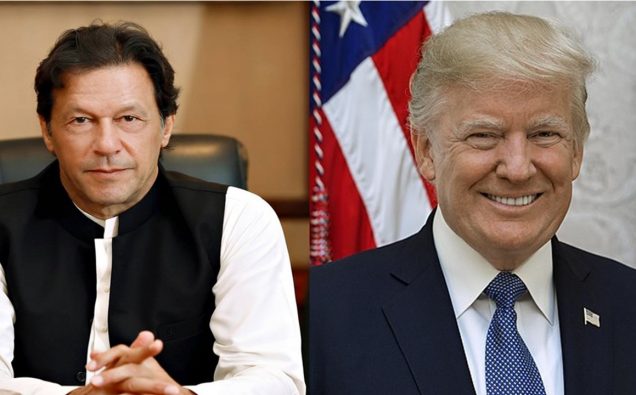
On the eve of Prime Minister Imran Khan’s visit to the United States, Foreign Minister Shah Mahmood Qureshi has described President Trump’s decision to find a political resolution to the Afghan war – the longest conflict in American history that has last for 18 years.
Islamabad, which has pushed the warring Afghan Taliban to talks with the U.S. interlocutors, says Trump’s move validates its long-held view that Afghan reconciliation is the only to wind up the 9/11-triggered war on its Western border.
The Pakistani support for the Afghan peace process has also brought some warmth to the U.S.-Pakistan relations, which has fluctuated between close cooperation and periods of estrangement since 1980s, when the two partnered to fight the Soviet occupation of Afghanistan.
After the 9/11 terrorist attacks, Pakistan became the key route for U.S. supplies into landlocked Afghanistan as it invaded the country, which served as headquarters for al-Qaeda.
But allegations of Pakistani support for the Afghan Taliban and unpopular American drone strikes inside Pakistani tribal areas along the Afghan border dogged the relationship. Additionally, the growing U.S.-India relationship and Pakistan’s opening up its land to Chinese for Belt and Road Initiative has heightened American and Pakistani strategic concerns.
But interdependence has kept the alliance intact, though on a much smaller scale that it used to before discovery of Osama bin Laden in Abbottabad, where he he was killed in a U.S. Special Forces operation in May 2011.
“Pakistan has welcomed President Trump’s farsighted decision to pursue a political solution in Afghanistan, which in fact was an endorsement of our own position espoused for a long time,” Foreign Minister Shah Mahmood Qureshi said in Islamabad.
In Washington, Trump in a 2018 New Year tweet voiced U.S. frustrations with Pakistan – once called the most allied of the allies – when he accused Islamabad of doublespeak on the issue of Afghan Taliban, some of whom have long used the Pakistani soil to fuel their militancy in Afghanistan.
Pakistani counters the accusations of complicity with the Afghan militants by citing it successful counterterrorism campaigns, civilian and military sacrifices and economic losses in the face of Tehreek-e-Taliban Pakistan – the Pakistani version of Taliban that fought the Pakistani state, killing thousands.
By the end of 2018 Trump had made his plans clear to conclude the Afghan war and pull out American troops. In December last year, he sent an envoy and letter to PM Khan seeking Pakistan’s support for a peace talks push.
Since then, U.S. Special Envoy Zalmay Khalilzad has visited Islamabad several times and met with Taliban leaders in Doha, Qatar, to encourage talks and the U.S. and the Afghan Taliban are understood to have reached an understanding on a way out of the conflict.
As Pakistan extended its diplomatic support for the U.S. push, President Trump said Washington’s relations with Pakistan have improved considerably and that he looks forward to meeting the Pakistani leaders.
Pakistan’s delegation for the the July 22 meetings in Washington including a White House one-to-one meeting between President Trump and PM Khan, includes its powerful Army Chief Gen Qamar Javed Bajwa and ISI Chief.
Meanwhile, the Pentagon is deeply conscious of the value in cooperative U.S.-Pakistan relations – as evidenced on several occasions in the past.
Last week, General Mark A Milley, nominee for Chairman of the Joint Chiefs of Staff, told lawmakers on the Capitol Hill that the U.S.”needs to maintain strong military-to-military ties (with Pakistan) based on our shared interests.
While, the U.S. is interested in end the Afghan conflict, Islamabad wants restoration of full spectrum strategic relationship. Much will depend on how the Trump-Khan meeting goes and how far the two leaders with a history of strong views on major issues would be able to develop a trusting relationship.
















[…] Pakistan hails Trump’s policy to find political solution to Afghan war as farsighted […]
[…] Pakistan hails Trump’s policy to find political solution to Afghan war as farsighted […]